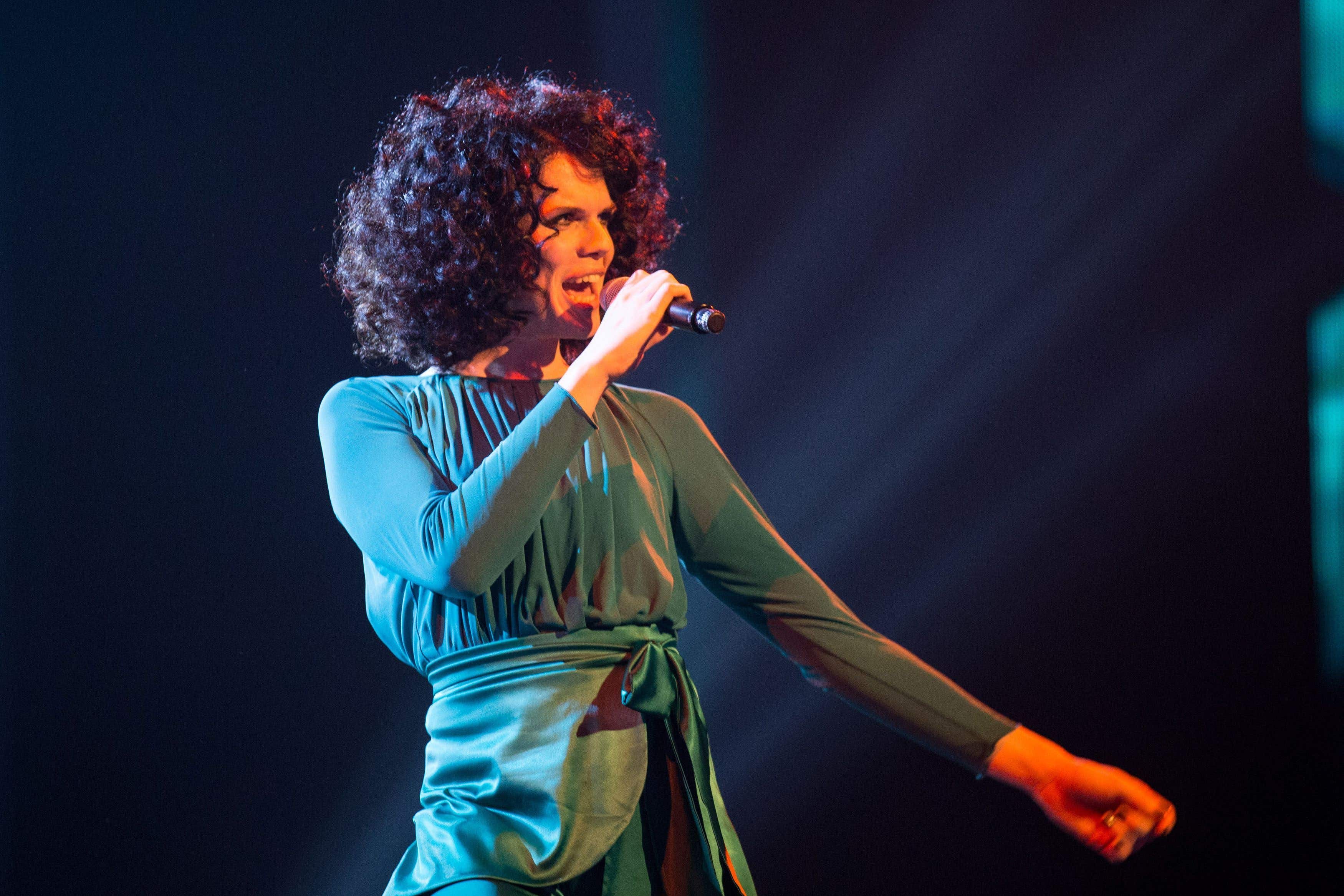Channel 4 boss: Jordan Gray’s sketch was ‘beautiful moment of trans expression’
Ofcom received more than a thousand complaints following her performance, which saw her strip down completely naked live on air.

Your support helps us to tell the story
From reproductive rights to climate change to Big Tech, The Independent is on the ground when the story is developing. Whether it's investigating the financials of Elon Musk's pro-Trump PAC or producing our latest documentary, 'The A Word', which shines a light on the American women fighting for reproductive rights, we know how important it is to parse out the facts from the messaging.
At such a critical moment in US history, we need reporters on the ground. Your donation allows us to keep sending journalists to speak to both sides of the story.
The Independent is trusted by Americans across the entire political spectrum. And unlike many other quality news outlets, we choose not to lock Americans out of our reporting and analysis with paywalls. We believe quality journalism should be available to everyone, paid for by those who can afford it.
Your support makes all the difference.Channel 4’s chief executive has said comedian Jordan Gray’s performance on the special revival edition of Friday Night Live was a “beautiful moment of trans expression”.
The comic performed her song Better Than You which explores her experience as a trans woman in a satirical light during the one-off episode broadcast last month as part of Channel 4’s 40th anniversary celebrations.
Ofcom received more than a thousand complaints following her performance, which saw her strip down completely naked live on air.
The media watchdog said it assessed the complaints but they were not pursued.
During Channel 4’s annual Inclusion Festival on Wednesday, the broadcaster’s chief executive Alex Mahon addressed the routine and the reaction to it.
She said: “We brought back Friday Night Live, live with Ben Elton, for our 40th birthday, and we had a performer in, a comedian called Jordan Gray.
“She’s trans and she stripped naked at the end of the performance and that was the first time, I think, really on mainstream television you see a trans body and what that looks like.
“That’s really important, it was a beautiful moment of trans expression. It was lovely.”
She added: “What’s great is a couple of thousand people complained to Ofcom, and Ofcom back us and say it’s perfectly, perfectly appropriate to put that on television.
“What’s even more powerful is young people writing to Jordan and talking about how that made them feel better about themselves, and better about what they are going through.
“This is a really difficult time for young people, and that kind of thing, the normalising of different body types is really, really important.
“So all the time, we’re looking for what the next frontier is, and that’s a good struggle for us to be going through to think about.”
An Ofcom spokeswoman previously said: “In our view, audiences would be likely to have expected controversial humour from this one-off special reviving an established alternative comedy series.
“We also took into account the time of the broadcast, which came more than an hour after the watershed, and the advance on-air warnings about very strong language and adult humour.”
Ms Mahon also discussed the other areas in which the broadcaster has been working on to improve its on and off-screen representation.
Among the initiatives, she referenced how it had the “first ever” fully disabled presenting line-up for their coverage of the Beijing 2022 Paralympic Winter Games and how Davina McCall’s menopause programming had helped break down the taboo around that topic.
She said: “It’s difficult to be shocking and challenging and different in a TikTok world, and I totally accept that, but in a way, I think that’s more needed now than it ever was because, actually, things that are trusted and true, and appeal to audiences and challenge perspectives, and maybe change people’s opinions, are perhaps more important than they ever were before.”
However, the chief executive admitted that with representation she feels it is “easier to fix on-screen than it is off-screen”.
Discussing improving diversity behind the scenes, she said: “I would say it’s arguably more important because it’s what changes our industry over time.
“It’s what changes how people make decisions on-set, it changes the creative, it changes the tenure of the editorial conversation.
“I think we’ve changed it broadly within the building in Channel 4 and at the other broadcasters, but it’s about what you do on crews, it’s about all the challenges that we know are faced there.”
Broadcast executives from the BBC and ITV were also among those to discuss what they feel are the urgent issues facing the industry and how they can be addressed during the event.
BBC director-general Tim Davie said: “Diversity is an absolute priority for the BBC. We have plans in place to reshape our organisation to ensure we truly reflect the public we serve – both on and off-screen.
“The BBC is playing a leading role – stepping up our commitment to rapidly increase diverse representation at senior levels as well as our £112 million Creative Diversity Commitment – the biggest financial investment to on-air inclusion in the industry.
“We are working hard to deliver change.”